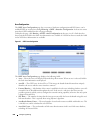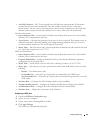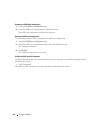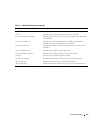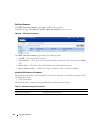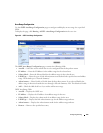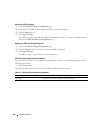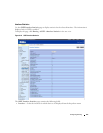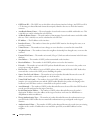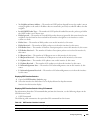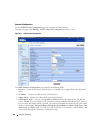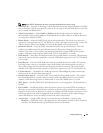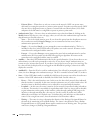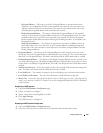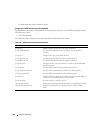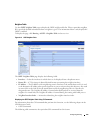
528 Configuring Routing
•
OSPF Area ID
— The OSPF area to which the selected router interface belongs. An OSPF Area ID is
a 32-bit integer in dotted decimal format that uniquely identifies the area to which the interface
connects.
•
Area Border Router Count
— The total number of area border routers reachable within this area. This
is initially zero, and is calculated in each SPF Pass.
•
AS Border Router Count
— The total number of Autonomous System border routers reachable within
this area. This is initially zero, and is calculated in each SPF Pass.
•
IP Address
— The IP address of the interface.
•
Interface Events
— The number of times the specified OSPF interface has changed its state, or an
error has occurred.
•
Virtual Events
— The number of state changes or errors that have occurred on this virtual link.
•
Neighbor Events
— The number of times this neighbor relationship has changed state, or an error has
occurred.
•
External LSA Count
— The number of external (LS type 5) link-state advertisements in the link-state
database.
•
Sent Packets
— The number of OSPF packets transmitted on the interface.
•
Received Packets
— The number of valid OSPF packets received on the interface.
•
Discards
— The number of received OSPF packets discarded because of an error in the packet or an
error in processing the packet.
•
Bad Version
— The number of received OSPF packets whose version field in the OSPF header does
not match the version of the OSPF process handling the packet.
•
Source Not On Local Subnet
— The number of received packets discarded because the source IP
address is not within a subnet configured on a local interface.
•
Virtual Link Not Found
— The number of received OSPF packets discarded where the ingress
interface is in a non-backbone area and the OSPF header identifies the packet as belonging to the
backbone, but OSPF does not have a virtual link to the packet's sender.
•
Area Mismatch
— The number of OSPF packets discarded because the area ID in the OSPF header is
not the area ID configured on the ingress interface.
•
Invalid Destination Address
— The number of OSPF packets discarded because the packet's
destination IP address is not the address of the ingress interface and is not the AllDrRouters or
AllSpfRouters multicast addresses.
•
Wrong Authentication Type
— The number of packets discarded because the authentication type
specified in the OSPF header does not match the authentication type configured on the ingress
interface.
•
Authentication Failure
— The number of OSPF packets dropped because the sender is not an existing
neighbor or the sender's IP address does not match the previously recorded IP address for that
neighbor.



